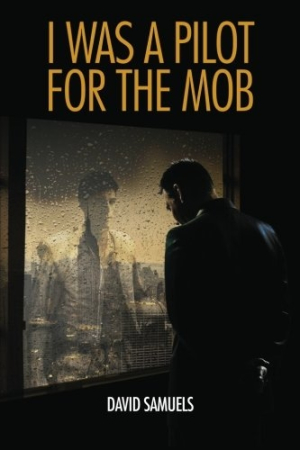I Was a Pilot for the Mob
David Samuels, like the lead character and narrator of I Was a Pilot for the Mob, is a decorated veteran and winner of the Silver Star and numerous other medals for courage under fire. The author draws on his own experience as a helicopter gunship pilot in Vietnam and infuses the narrative with the kind of detail, action, and emotion that only someone who has been in combat can contribute.
Despite the title (which sounds like that of a 1940s black-and-white gangster movie), at least half of the book is about training to be and serving as an Army combat pilot. The first thirteen chapters could be either an autobiographical military memoir or a war novel, or some combination of the two. There are the requisite stories of growing up and coming of age, of enduring the rigors of training at Forts Polk and Rucker (known as “Mother Rucker”) in Alabama, and of the challenge and terror of battle. Readers seeking a good Vietnam War story will not be disappointed, although those who pick up the book expecting a Mafia novel may wonder when Samuels will finally get to the “good parts.”
He does, eventually, and with a fair amount of elegance and believability. There is a chapter from the hero Daniel’s teen years in which he works for a construction company, is befriended by a shady character with mob connections, and becomes involved in loan-sharking. Upon his discharge from the service and his return to New Jersey, Daniel finds himself drawn back into that world, becoming at first a pilot and later “muscle” for the mob. The Mafia “missions,” as Daniel calls them, make him feel like he is “still a soldier, just in a different suit.”
Samuels writes simply and well. His character talks to and not at the reader. While even Daniel admits that certain mob characters, like one “Louie Velluci” in particular, seem to be “right out of a novel,” they are exactly the kind of creatures that readers of this genre expect and demand. Samuels delivers the goods, complete with the expected references to The Godfather, which are especially apropos as much of the mob story takes place during the decade when those series of books and movies were released.
The mob job “really pays well,” though it is not the money but the thrill that propels the main character into such a life. “I loved the adrenalin rush,” Daniel tells the reader as he embarks upon one such operation. “My blood started to rise, and I started to get the warm feeling,” a feeling he says that used to come only from combat. As Daniel explains, and as so many returning veterans understand, once back in the real world “you aren’t the same and neither are the people you left behind.” Many veterans are traumatized by what they went through in war, but others, like Daniel (and perhaps the author himself), wonder, “What will replace the thrill of combat?” For the main character of Samuels’s book, the answer is found in the title.
Reviewed by
Mark McLaughlin
Disclosure: This article is not an endorsement, but a review. The publisher of this book provided free copies of the book and paid a small fee to have their book reviewed by a professional reviewer. Foreword Reviews and Clarion Reviews make no guarantee that the publisher will receive a positive review. Foreword Magazine, Inc. is disclosing this in accordance with the Federal Trade Commission’s 16 CFR, Part 255.

